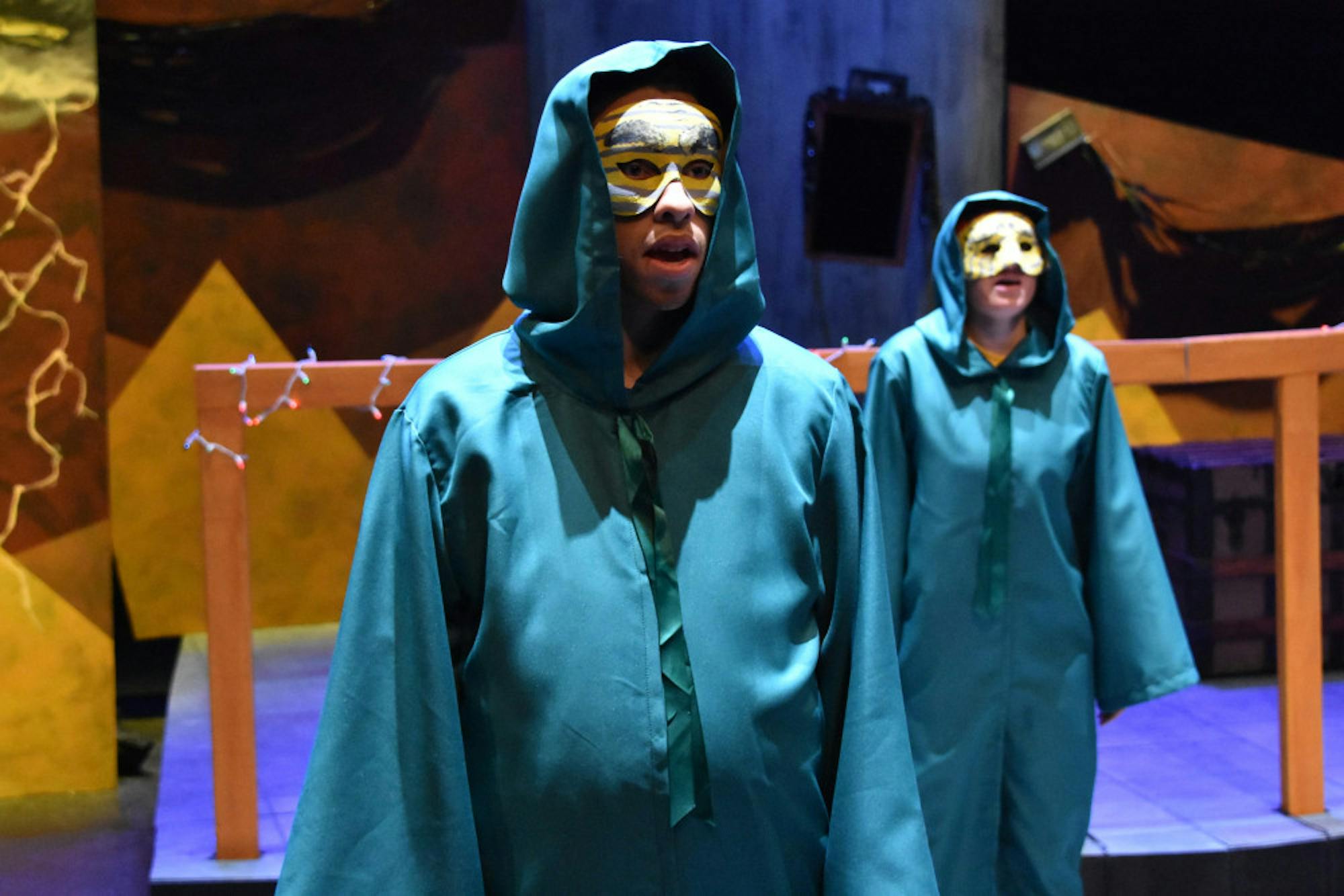From Thursday, March 7, to Saturday, March 9, one can find Tufts University’s Pen, Paint & Pretzels' (3Ps') major show playing in Balch Arena Theater. This show, titled "Mr. Burns: a post-electric play," revolves around two things most would consider unassociated: "The Simpsons" (1989–) and the apocalypse. In the three acts of this show, the characters must find a way to continue on with their lives, and in the process, come to understand the importance of storytelling and collective memory.
When the stage lights rise for Act I, five characters, a few lawn chairs and a bonfire greet the audience. The characters are dressed in rags, and it is obvious, from the man standing guard with a flashlight and a woman shaking in the corner, that something terrible has occurred, though what exactly has happened to them is not immediately evident. Unexpectedly, the audience was made aware of "The Simpsons" even before the end of the world has been addressed. The characters onstage speak and laugh about some of their favorite episodes, desperately trying to help each other remember the best lines.
With the introduction of an intruder, Gibson, things begin to shift. The post-apocalyptic world is made painfully evident. When the other characters meet him, they each bring forward a notebook with a list of names — either people they knew or family members they lost — in hopes that this new person might have come across them in his journeys. The play’s tone saddens with the realization that he has not. But then they are opening beers and reminding themselves of "The Simpsons," to help them pass the time and recall the entertainment they used to treasure.
Perhaps the most poignant line in the first act is: “Not knowing, that’s the problem. I think I could handle anything, if I just knew what it was.”
Maria says this in response to a frightening conversation dealing with the fact that none of the characters know how many nuclear plants exist in the United States. Some believe there are 12 and others hear there are hundreds. This, along with familiar New England towns and roads, creates an eerie feeling, leading the audience to think that this apocalypse could very well have happened yesterday.
The second act takes place seven years after the first, and the characters are now a part of an acting troupe, where their livelihood revolves around performing episodes of "The Simpsons." This play cleverly showcases the growing importance of "The Simpsons" because this troupe must compete with other troupes for ‘episodes’ to perform, as well as buy ‘lines’ from survivors who remember them, so they can fit together the pieces to create a full episode. This introduces the theme of collective memory, exhibiting the importance of remembrance in order for humanity to move forward after so much strife.
Act II of this show is a wild ride. Viewers are met with the realization that in a post-apocalyptic world, “Diet Coke might just be gone,” and a discussion of the efficacy of commercials in convincing people they need products. There is even a dance medley including songs like “All Star” (1999), “Single Ladies” (2008) and “thank u, next” (2018).
The argument surrounding the importance of "The Simpsons," whether it is meaningless entertainment or a vehicle to relay meaning, becomes a key tenet of the show. This argument can perhaps explain why "The Simpsons" becomes so important in the third act, and how entertainment through storytelling will always be a pivotal part of society.
The third act surprised many in the audience. Looking around, one could see viewers stunned, afraid or beside themselves in laughter or a crazy combination of the three. This act takes place 75 years after the second and consists of an ‘adapted’ episode of "The Simpsons." It is definitely wacky, but clever and hilarious all the same. It morphs the cartoon that the Simpsons themselves watch, featuring Mr. Burns and Itchy & Scratchy, into a storytelling masterpiece, showing viewers how the Simpsons help humanity endure. As student director Jonah Greene, a junior, writes in the director’s note: "This show ... highlights the importance of storytelling, showing the pop-culture of today becoming the mythology of tomorrow.”
3Ps' 'Mr. Burns: a post-electric play' explores pop culture in post-apocalyptic world

A scene from a dress rehearsal of 'Mr. Burns: a post-electric play' is pictured.





